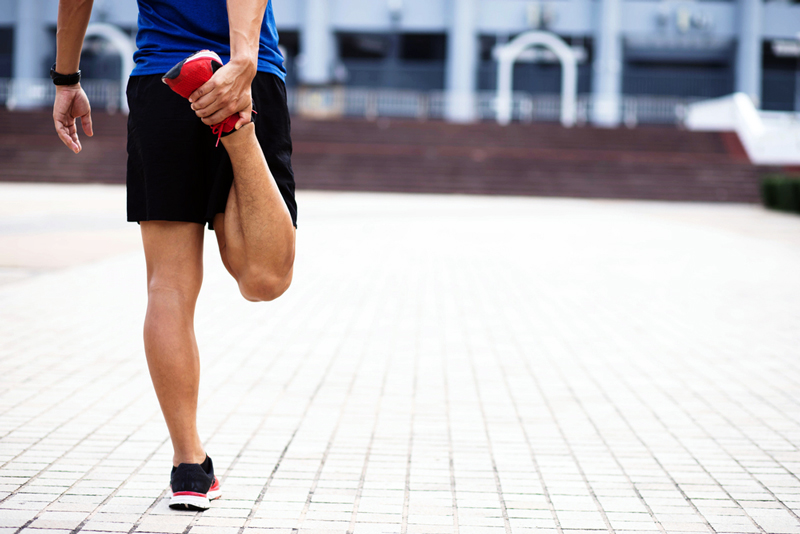Recently, Miss Homa Arshad, a consultant orthopaedic surgeon at The London Clinic, spoke to lifestyle magazine Stylist about how runners can best protect their knees and why habitual running can actually protect against long-term problems. Here, we share some key outtakes.

About Miss Homa Arshad
Miss Arshad’s professional practice is based on hip and knee arthroplasty and the identification and management of problems affecting the hip or knee. She specialises in complex or challenging hip and knee replacement surgery, with the majority of this work for revision hip surgery where hip replacements have developed problems.
Unfortunately, joint and knee pain has always been a common side effect of running, and the sudden surge in its popularity has led to increased conscientiousness about those niggles and whether they could lead to a more serious, long-term issue such as knee osteoarthritis
At The London Clinic, there’s been an influx from patients and the press asking questions about the impact of running on our bodies. The answers aren’t always as disheartening as we might think. In fact, they can be quite the opposite.

First of all – the good news
“Running is good, safe and healthy,” says Miss Arshad. “It isn’t bad for the knees, per se. It has huge benefits for the whole body, and can actually be very good for the knees.”
Perhaps dispelling the greatest myth of them all, running can promote knee health in the long term. Instead, the issue lies in perception.
Running gets a bad name because people can injure and do damage to their knees, which damages the reputation of running itself. Instead, we should start thinking of running and injuring knees as separate entities, not intrinsically linked.
For instance, Miss Arshad continues, “It’s really important to address the myth that running causes arthritis, because the vast majority of people who run do not develop it. Even for runners who do develop knee problems, those problems will get better. A few may require surgery, but not many.”
Avoiding injuries
Often, it can be an individual’s personal technique or equipment such as the wrong footwear that causes injuries. This can be prevented with training and guidance.
“If you’re doing a repetitive movement and loading the knee each time in a way that isn’t ideal there can be an excessive twisting of the knee that can do damage to cartilage,” Miss Arshad says.
For runners keen to seek advice on a running technique that helps to avoid injuries, Miss Arshad recommends speaking to a physiotherapist, such as those located at The London Clinic.
Meanwhile, runners can also visit a sports store with a treadmill, where experts can analyse their gait and ensure they are wearing the right footwear for their running style.
Tough terrain and running uphill
“When we run uphill,” Miss Arshad explains, “eight times our body weight passes through the front part of the knee.”
“There is a theory that impact [such as this] is bad for cartilage, but I don’t know of any study that has demonstrated that conclusively.”
Many people find more difficult terrain can give them negative symptoms. Likewise, certain runners, such as endurance runners, can develop problems if their goals take precedence over what they may be experiencing.
However, overcoming such obstacles is about understanding and listening to what our bodies are telling us, rather than following a certain set of rules.
“Running through pain and injury can obviously be very detrimental to the knees… I encourage patients to be guided by their experience,” Miss Arshad continues.
Supplements explained
You may have heard different advice when it comes to supplements. Runners swear by the likes of glucosamine, ginger, turmeric and cod liver oil, but what are the facts?
“If people take them and feel better, that’s fine,” says Miss Arshad.
But in general, the majority of supplements have no proven benefits to running.
Miss Arshad does, however, recommend that everyone – runner or not – takes vitamin D, which has been proven to improve bone health.
A recovery mindset
Miss Arshad notes that the link between physical and mental health is becoming increasingly strong in orthopaedic surgery.
She regularly treats patients who have suffered catastrophic injuries from major accidents, and said that when it comes to recovery, the single biggest factor has nothing to do with age, weight or physical health. It’s about the patient’s mindset.
The same can be applied to runners.
“It’s actually their approach to life,” she says, “and whether or not they feel in control of their life and what is happening to their body. In terms of running, I think that’s very similar. The human mind is very powerful.”
Further information
Read the full article in Stylist.
New to running? Learn how to prevent common injuries by reading physiotherapist Ruth Ashton’s guide on how to identify weaker muscles through a Movement Control Assessment.
Find out how to strengthen muscles while recovering from a running injury such as ‘runner’s knee’.





